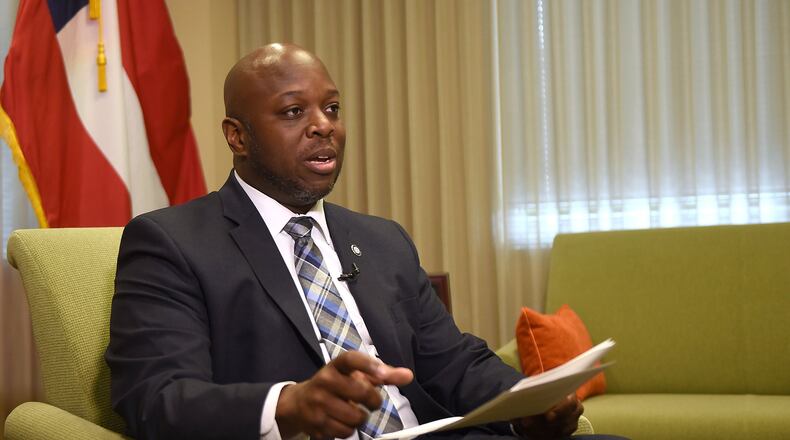Many of Georgia’s employees tasked with monitoring juvenile offenders continue to show up to work every day while taking extra steps to ensure their safety during the growing coronavirus pandemic.
Even though Gov. Brian Kemp earlier this month encouraged state employees who could to telework, 60% to 65% of the Department of Juvenile Justice’s some 3,500 staff members — such as security officers and health care staff across 26 facilities — are not able to stay at home.
Instead, staff members are taking precautionary steps such as limiting “nonessential” trips, such as routine dental cleanings or seeing an outside therapist, and conducting coronavirus symptom screenings of new detainees and those providing on-site services as they enter juvenile facilities.
“As of today, we’ve had no employees who’ve experienced any kind of symptoms and no youth,” DJJ Commissioner Tyrone Oliver said. “So we’re doing a good job guarding the gate.”
MORE: A map of coronavirus cases in Georgia (updated March 23)
MORE: Real-time stats and the latest news on the coronavirus outbreak
Oliver said with public schools closed, on-site teaching has ceased, but physical and mental health services have continued.
The department is housing almost 1,200 young offenders ages 13 to 21. Depending on the severity of the crime, a young offender who’s been convicted can serve a sentence in a juvenile facility up to age 21.
Those who are still in school are receiving weekly lesson packets to complete until school is allowed to resume. DJJ officials are also allowing more opportunities for young offenders to participate in recreational activities, such as going to the gym or the library.
Oliver said the DJJ has limited transporting those in custody to off-site visits unless necessary — such as a court or hospital visit — suspended in-person visitation and asked staff to self-screen for any coronavirus-related symptoms and to stay home if they feel sick. Many juvenile courts across the state also have implemented videoconferencing for routine hearings, Oliver said.
The virus has also had an impact on how young offenders on probation are monitored. DeKalb County juvenile probation manager Tyrese Harris said officers are limiting the number of in-person visits — at home or at the office — and relying more heavily on technology to check in with youth offenders “face to face.”
“Most of the kids don’t understand how serious (coronavirus) is, but their parents are like, ‘We get it, we understand,’ ” Harris said. “But parents still want to make sure that their youth is seen and that they don’t get in trouble for missing a visit.”
Oliver said Kemp’s request last year for state agency heads to trim their budgets set up the DJJ to more easily deal with a crisis.
For example, cutting landlines and relying on cellphones made it easier for employees who could work from home to work remotely.
“I know it wasn’t (Kemp’s) intention,” Oliver said, “but it prepared a lot of agency heads to be prepared for something like this.”
About the Author
Keep Reading
The Latest
Featured




